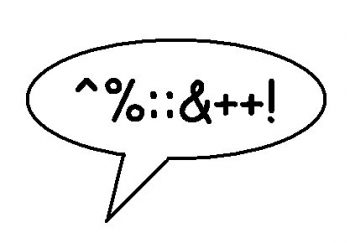Archive for January, 2012
The letter å Posted by Stephen Maconi on Jan 31, 2012
Last week I clarified where the Swedish letters ä and ö come from, but to you the origin of the letter å is still a mystery. And here I am to clear it up! In 1526, a new time period known in Swedish linguistics as Nysvenska perioden began with the first ever Swedish translation of…
Swedish swear words Posted by Katja on Jan 27, 2012

The first words many foreigners learn in a new language are usually swear words. I don’t think this is uncommon for anybody, no matter where you come from or what language you want to learn. The point of this post is not to encourage swearing but to explain the degree of different swear words in…
Svenska Samtalsbordet Posted by Marcus Cederström on Jan 25, 2012
We’re always looking for learning language tips here at Transparent. It’s why everyone who works so hard on the various language learning software is so proud of what they do (if you haven’t already, check out what Transparent has to offer). But sometimes, some of the best things in life are free. Or, at least…
Why does ‘hand’ become ‘händer’ in plural? Posted by Stephen Maconi on Jan 24, 2012
This is one question that boggles the minds of many learners of the Swedish language (as well as the other Nordic languages). Why doesn’t ‘hand’ just become ‘hander’ or ‘handar’ in plural? The answer to this lies in a major change that occurred throughout Germanic Europe in the Early Middle Ages (which in Scandinavia was…
“This” and “these” Posted by Katja on Jan 19, 2012
In Sweden there are lots of different dialects, and of course people use different words for the same thing. Something as simple as “this” you’ll find lots of variations of and for someone learning Swedish that can be a bit confusing. Especially if the word everybody is using in some areas is grammatically incorrect, and…
Helpful Swedish Phrases Posted by Marcus Cederström on Jan 18, 2012
We try to give you a basic understanding of Swedish here at Transparent Language. We mix vocab in with grammar in with culture in with news. It’s always a challenge trying to make sure that these posts have a little bit for everyone. And we realize that that is nearly impossible. Some of you have…
Stop or shut? Posted by Stephen Maconi on Jan 17, 2012
Similar to the nouns in last Tuesday’s post, there are a number of Swedish verbs that have the same infinite form but different meanings and different conjugation. One of the best examples is the words sluta, meaning either “stop”, “end”, or “shut”, depending on its context and grammatical conjugation. It is also worth noting that…


